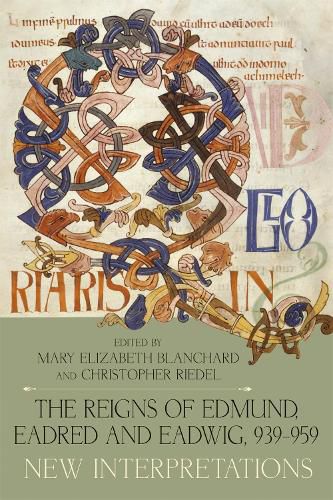Readings Newsletter
Become a Readings Member to make your shopping experience even easier.
Sign in or sign up for free!
You’re not far away from qualifying for FREE standard shipping within Australia
You’ve qualified for FREE standard shipping within Australia
The cart is loading…






Essays highlighting the importance of three kings - Edmund, Eadred and Eadwig - in understanding England in the tenth century. Much scholarly attention has been devoted to both the expanding kingdom of Alfred the Great, Edward the Elder, and AEthelstan, and to the larger and integrated realm of their more distant successors, Edgar and AEthelred II. However, the English kingdom in the 940s and 950s, and its three kings, Edmund (939-946), Eadred (946-955), and Eadwig (955-959), the men who inherited and held together the kingdom created by their immediate predecessors, have been somewhat neglected, with little research being dedicated to these men as kings, or the era in which they ruled.
This volume offers a variety of approaches to the period. Its contributors bring to light royal legal innovations to ecclesiastical law, oaths, heriot, complex factional politics, including the crucial role of queens, differing perspectives on the final era of an independent northern kingdom of York, and developments in literary culture outside the domineering trend of the later monastic reformers.
$9.00 standard shipping within Australia
FREE standard shipping within Australia for orders over $100.00
Express & International shipping calculated at checkout
Stock availability can be subject to change without notice. We recommend calling the shop or contacting our online team to check availability of low stock items. Please see our Shopping Online page for more details.
Essays highlighting the importance of three kings - Edmund, Eadred and Eadwig - in understanding England in the tenth century. Much scholarly attention has been devoted to both the expanding kingdom of Alfred the Great, Edward the Elder, and AEthelstan, and to the larger and integrated realm of their more distant successors, Edgar and AEthelred II. However, the English kingdom in the 940s and 950s, and its three kings, Edmund (939-946), Eadred (946-955), and Eadwig (955-959), the men who inherited and held together the kingdom created by their immediate predecessors, have been somewhat neglected, with little research being dedicated to these men as kings, or the era in which they ruled.
This volume offers a variety of approaches to the period. Its contributors bring to light royal legal innovations to ecclesiastical law, oaths, heriot, complex factional politics, including the crucial role of queens, differing perspectives on the final era of an independent northern kingdom of York, and developments in literary culture outside the domineering trend of the later monastic reformers.